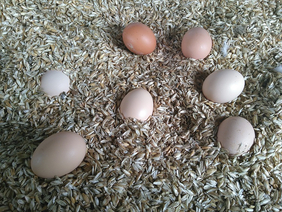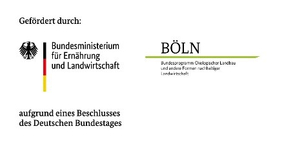Between January 2020 and September 2022, the project addressed possible recycling routes for dirty, cracked and very small (S) eggs from small flocks of laying hens (100 - 3,000 hens).
At the end of the project, the results were summarized in a practical leaflet by BÖLN kompakt here [Link in german].
The detailed project results can be found at https://orgprints.org/id/saved_search/1853 [Link in german].
The detailed final report contains the individual results from various work packages, in particular the presentation of the individual utilization strategies and their sustainability assessment. Other topics include the role of producer organizations for small layer farms, integration into logistics networks and slaughter conditions for old hens from small layer flocks.
Furthermore, two separate fact sheets and a management guide were produced during the course of the project.
- In the "Leaflet on the valorization of non-marketable eggs - requirements and opportunities of important valorization strategies", different strategies are explained in a practical way based on the criteria "legal requirements", "resource protection", "work processes", "customer loyalty" and "economy".
- The "Leaflet on waiting periods after administration of medicines to laying hens in organic farming" addresses the new waiting period regulations under the EU Organic Farming Regulation (VO (EU) 2018/848. This regulates the sale of eggs as organic goods after the treatment of animals with chemical-synthetic, allopathic medicines more strictly than before.
- The "Practice-oriented management guide for the reduction and avoidance of non-marketable eggs from small laying hen flocks" addresses the factors influencing the occurrence of non-marketable eggs and possible options for action for keepers.
The project partners were Bioland Beratung GmbH and Demeter e.V., and the project was financed by the federal program "Organic Farming and Other Forms of Sustainable Agriculture" (BÖLN). The client was the Federal Office for Agriculture and Food (BLE).
Contact person at IfLS: Bettina Spengler (spengler[at]ifls.de)

